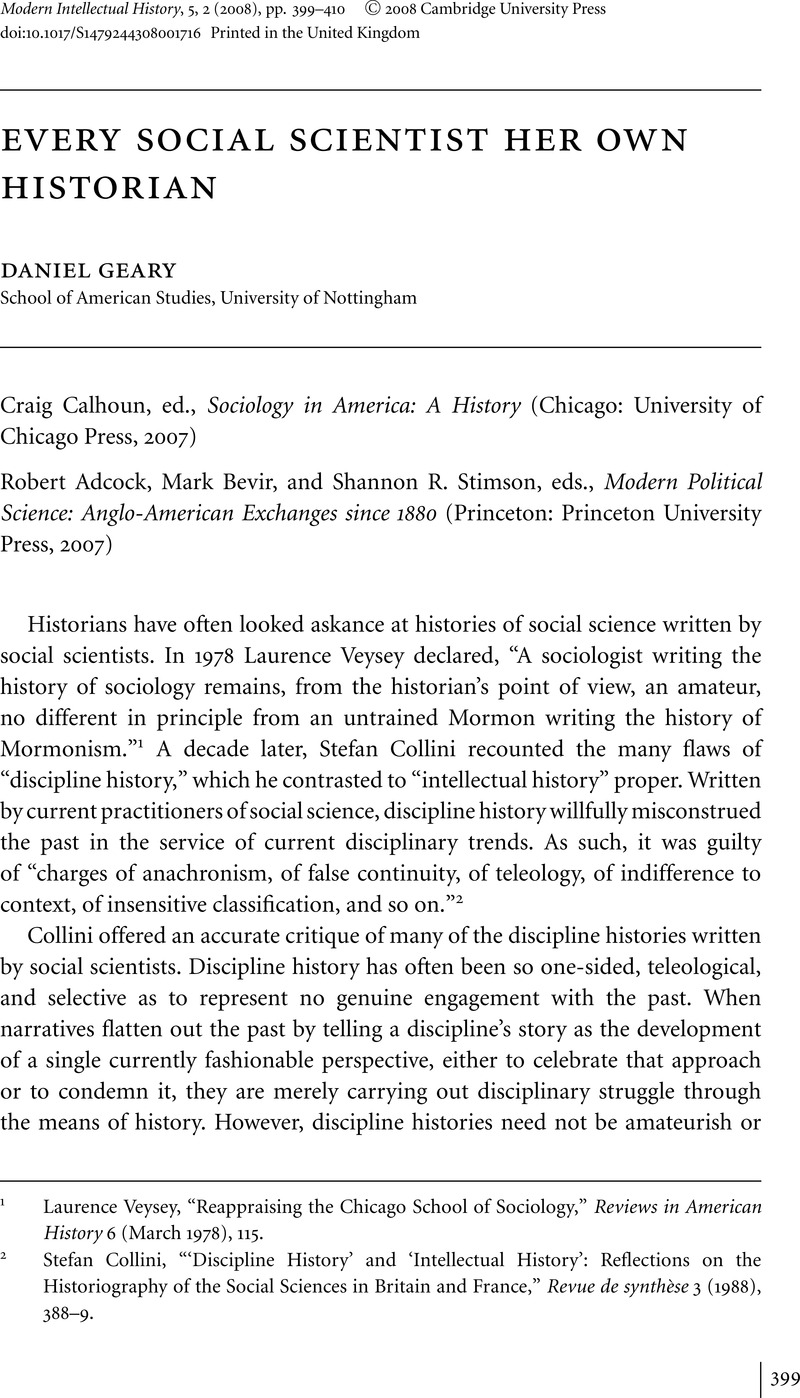Published online by Cambridge University Press: 01 August 2008

1 Veysey, Laurence, “Reappraising the Chicago School of Sociology,” Reviews in American History 6 (March 1978), 115CrossRefGoogle Scholar.
2 Collini, Stefan, “‘Discipline History’ and ‘Intellectual History’: Reflections on the Historiography of the Social Sciences in Britain and France,” Revue de synthèse 3 (1988), 388–9Google Scholar.
3 To cite a well-known example, Dorothy Ross's analysis in The Origins of American Social Science (New York: Cambridge University Press, 1991) is clearly designed in part as a critique of ahistorical approaches in the social sciences. Joel Isaac has argued that historians' preference for historicist modes of analysis in the social sciences has led them to neglect the significance of analytical and synchronic forms of analysis. See Joel Isaac, “Theories of Knowledge in the American Human Sciences, 1920–1960” (Ph.D. thesis, University of Cambridge, 2006), 232–9.
4 Merton famously selected this Alfred North Whitehead quote as the epigraph to his Social Structure and Social Theory (Glencoe: Free Press, 1949), 3. While the statement accurately reflected the attitudes of many social scientists, Merton himself actually had a strong interest in the history of social science.
5 Kuhn, Thomas S., The Structure of Scientific Revolutions (Chicago: University of Chicago Press, 1962), xGoogle Scholar. Strikingly, Kuhn was writing at the very height of what is often assumed to mark the dominance of consensual paradigms in social-scientific disciplines.
6 One example of this is the superb Cambridge History of Science, vol. 7, The Modern Social Sciences (New York: Cambridge University Press: 2003), edited by Theodore Porter and Dorothy Ross and containing contributions from both historians and social scientists.
7 Some of the most interesting recent research on the history of social science breaks out of the standard US and Western European framework. See, for instance, the essays in part III of the Cambridge History of the Modern Social Sciences, all of which examine “The Internationalization of the Social Sciences.”